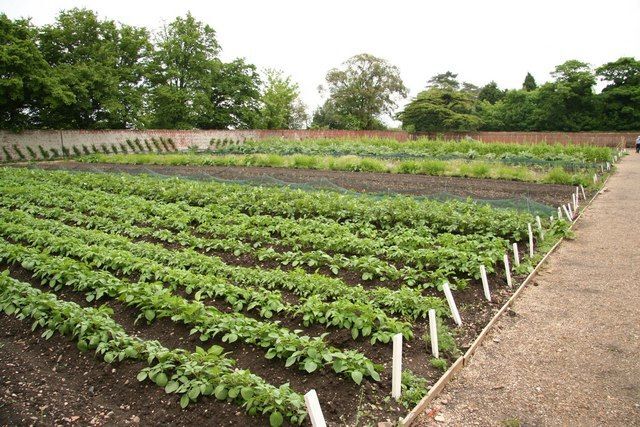Does your vegetable garden really need lime?
Published 11:08 am Thursday, February 11, 2016

- Vegetable garden
The month of January has quickly passed and soon people will turn their attention to their spring vegetable gardens. I would encourage you to brave the chilly temperatures of February and go ahead and take your soil samples and get them sent in. Soil test results are useful to determine whether fertilizer or lime applications are needed. The soils lab gets backed up in late winter and early spring. Additionally, if you do need to apply lime in your garden plot, it takes it about three months to become active in the soil. WAIT, before you apply lime to the area, see if your soil tests indicate that you need it. You can really do harm to the soil by applying lime if it is not needed or by applying too much. Some nutrients that plants need get bound up in the soil and cannot be utilized by the plants if the soil pH is too high. This results in nutrient deficiencies in the plants even though the nutrients are in the soil. Lime will stay active in the soil for about three years so once you over-lime, you are stuck with poor soil conditions for awhile. Keep in mind, vegetables and herbs prefer a soil pH of 5.8-6.3 which is slightly acidic.
Trending
In order to obtain reliable results from a soil test, the soil sample must be taken correctly. The soil sample should accurately represent the area that will be planted and managed. The items needed to take a soil sample include a plastic bucket, a shovel (or soil probe), and a paper bag or newspaper. Follow these steps to properly collect a soil sample:
- Identify the area to be sampled. Turf areas, vegetable gardens and ornamental beds should all be sampled separately. Also, any problem areas (such as depressions, rocky areas, etc.) should be sampled separately to avoid contaminating samples from good areas.
- Using a shovel (or soil probe), remove soil from 10 to 15 locations within the sampling area. Soil should be removed from the top 6 inches. Walk in a zigzag pattern, stopping occasionally to remove soil for the sample.
- After taking each sub-sample, remove any plant material or mulch and deposit the soil into the plastic bucket. Mix the soil in the bucket to ensure it is well blended.
- Spread the soil out on a newspaper or paper grocery bag and allow it to dry thoroughly.
- Once dry, pack approximately 1 pint of soil (fill to the dotted line) into a soil sample bag (available free from your local UF/IFAS Extension office). Alternatively, you may pack soil into a zip-top plastic bag.
Soil samples being submitted to the UF soil lab should be accompanied by a completed Landscape & Vegetable Garden Soil Test Information Form (EDIS publication SL136 http://edis.ifas.ufl.edu/SS187) and the associated test fee should be paid by an enclosed check or money order. Test A ($3) includes soil pH and lime requirement analyses; Test B ($7) adds analysis of phosphorus (P), potassium (K), calcium (Ca), and magnesium (Mg). The UF soil lab does not test soils for nitrogen (N). A reliable N soil test does not exist because the chemical forms of N in the soil are constantly changing due to Florida’s warm and humid climate. Once the soil analysis is complete, a soil test report will be mailed. For a quicker response, provide an email address and report(s) will be sent immediately upon completion of analysis.
Keep in mind, a bountiful garden starts with good soil and happy plant roots. Plan ahead so when it is time to plant you know your plants will have access to the nutrients they need. UF/IFAS Extension staff and Master Gardener volunteers offer a variety of educational opportunities to help you be successful with your vegetable garden. Visit our Master Gardener volunteers at the Seed Library on Wednesday afternoons from 1-3 p.m. at the library in Live Oak. We also have a Lunch and Learn Gardening series at the Live Oak Library on the third Thursday of the month. For demonstrations and workshops, attend our gardening programs at Heritage Park and Gardens on the third Tuesday of the month from 9 a.m. to 12 p.m. Information for this article was obtained from an UF EDIS publication, Soil Sampling and Testing for the Home Landscape or Vegetable Garden1 by Rao S. Mylavarapu2. If you have questions, please call our office at 386-362-2771 or email Carolyn Saft (csaft318@ufl.edu) or Kasey Bass (kaseybass@ufl.edu). You can also stop by our office at 1302 11th St. SW in Live oak to pick up soil sample bags and forms or other gardening publications. UF/IFAS Extension in Suwannee County is an equal opportunity institution.


